#nostalgical
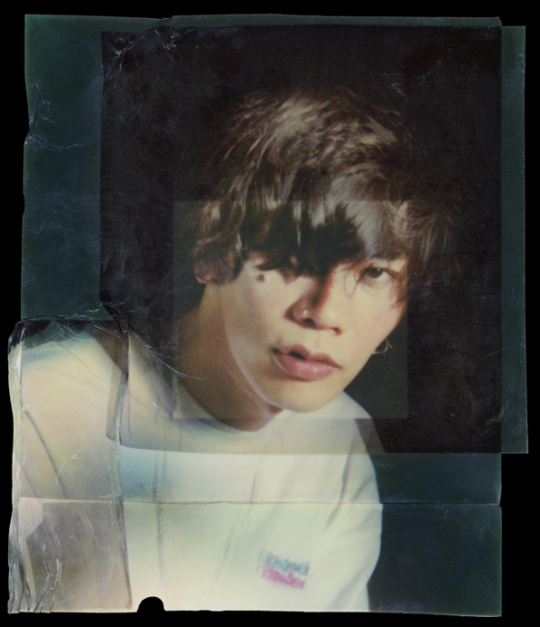
Here I am with the third part of August’s themed week in “Focusing on”! Today’s subject is a Japanese pop artist, who breaks the canon of the genre with simpleness and energy. We’re talking about Kenshi Yonezu, born on 10th March 1991 in the rural area of Tokushima. His first approach to music occurred on 2006, when he created a band with a friend of his, named Late Rabbit Edda, which didn’t get much success. Then, between 2008 and 2009, he started to release Vocaloid tracks on Nico Nico Douga under the stage name Hachi and sometime later he moved to Osaka, where he published other Vocaloid tracks, which became quite popular. On 2009 he officially appeared in a Exit Tunes compilation and in other Vocaloid compilations, boosting his popularity even more, arriving to release two albums of his own, Hanataba to suisou(Bouquets and sea burials) and Official Orange. On 2011 he officially debuted in a major laber as Kenshi Yonezu and since then he built up the concept we got to know, mainly artistic and naturalistic, as he is also a drawer, whose works, inspired by Edward Gorey’s art, are featured in his videoclips and release covers. His genre is an alternative pop-rock, pretty unusual for the canon, where there’s an alternance between upbeat and nostalgical themes, with each song cured by Kenshi himself, in each aspect. His official debut occurred on May 2012, with the release of the first major album Diorama(reviewed here).
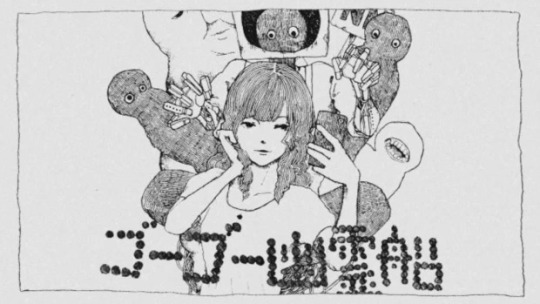
One of the lead-tracks, named Go go yuureisen(Go go ghost ship), sees an extremely positive sound, articulated by good electronic notes and charismatic vocals; the song is about the beginning of a revolution, synonym of a new chapter of Kenshi’s musical path. It has been followed by the singles Santa MariaandMad Head Love/Popping Apathy, the second album Yankee(reviewed here) and the single Flowerwall.

The title-track has clearer notes, building up an upbeat melody, with a relevant rhythm and Kenshi’s light vocals; the song is about trying to live in happiness and harmony. It has been followed by the single Unbelievers, the third album Bremen and the single Loser/Number Nine.
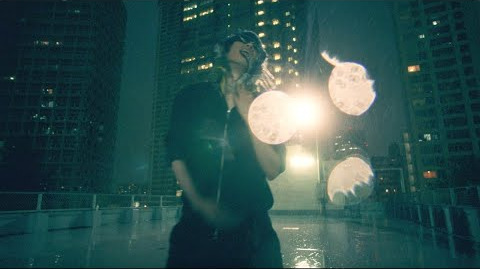
The first title-track mixes pretty well rock and dance pop, in a catchy sound, driven by energetic vocals and a positive melody; the song is about the bad luck and the defeat in everyday life. It has been followed by the singles OrionandPeace Sign, the fourth album Bootleg and the single Lemon.
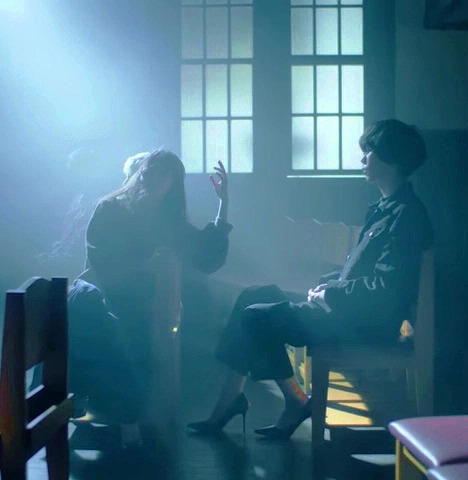
The title-track, featured as theme for the tv series Unnatural, has an intense atmosphere and a nice rock vibe, provided by a good melody and well kept up by Kenshi’s mature vocals (the videoclip has over 600 million views, making it the most viewed musical video in Japan); the song is about loving the life with someone else, even in bad moments. It has been followed by the singles Suna no wakusei(Sand planet), made in duet with Hatsune Miku,Flamingo/Teenage Riot,Umi no yuurei(Spirits of the sea),Uma to shika (Horse and deer) and Paprika.
The Japanese pop scene is incredibly wide and features a lot of acts, some better than others, but mostly calibrated in a certain common direction musically talking. Kenshi Yonezu has been able to subvert any expectation, since he came from the Vocaloid scene and brought a new and refreshing way of doing pop music. Catchy and upbeat themes, alternated to experimentations and melancholic melodies, accompained by Kenshi’s versatile and suggestive vocals, singing really peculiar lyrics, made of nature and feelings; this is how his music can be summarized, redefining the way most people is watching at Japan in terms of music. The presence of his songs in anime themes, dramas and TV spots boosted more his popularity, reaching even oversea audience, thanks to a simpleness which hides something more complex and deeper than expected. Surely Kenshi’s works don’t go unnoticed and that’s a surprising thing, since he relies on mature concepts and a characteristic art behind each his composition, and recently he stepped the game with his newest work, the fifth album Stray Sheep, one of the most awaited releases of this Summer and a really good companion for these troubled times.
Who might enjoy: who is looking for an unusual and riveting pop artist, whose style goes between nature, emotions and nostalgia.
Recommended tracks (as Hachi): World’s End Umbrella, Rinne and Matoryoshka.
Recommended tracks (as Kenshi Yonezu): Go go yuureisen, Vivi, Santa Maria, Flowerwall, Peace Sign, Loser and Lemon.
That’s all folks! See you on the final part of August’s themed week in “Lyrical Love”!
Thanks for the reading!

Here I am with the second part of August’s themed week in “Throwback Thursday”! Today’s subject is a release by the Japanese pop artist Kenshi Yonezu, precisely one of his earlier ones, the second original album Yankee, came out on 23rd April 2014. This album is pretty different from the previous one, Diorama, since it is the first work where Kenshi records with a support band and has a more introspective approach, with a concept dealing with the invisible forces influencing our lives. And now… let’s review!
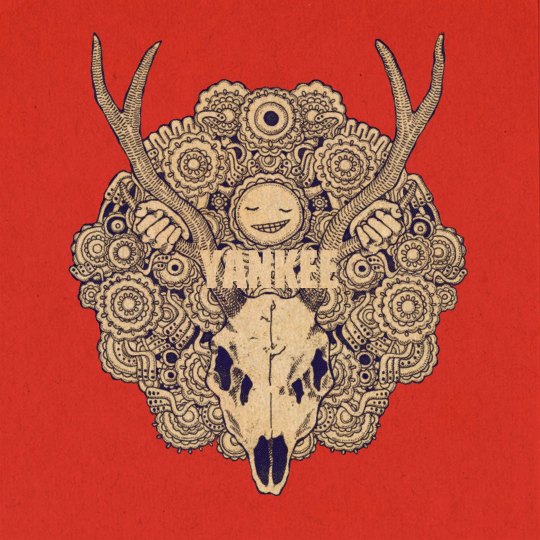
-Living Dead Youth [limitless life]: the album starts with its first lead-track, where Kenshi’s vocals kick off a steady and positive theme; the vocals become more positive and paced, building up a pretty nice song, driven also by a good guitar work. —> 8.5/10
-Mad Head Love [oppressing love]: the main track of the second single is opened by a mixed sound, between electronic and rock, thanks to interesting guitar notes; the vocals are steady and animated, driving the melody, simple and flowing; an upbeat song, with a peculiar shade. —> 8.5/10
-Wooden Doll [finding answers]: the second lead-track of the album sees clearer notes and a paced rhythm, where Kenshi’s voice is shaded accordingly and fits with the melody, especially in the refrain; a really good track, which express Kenshi’s positivity at maximum. —> 8.5/10
-Eine kleine (A little) [fading happiness]: the third lead is opened by soft vocals, accompained by a light and warm guitar, where the rhyhm wraps the melody in a simple way, building up a pleasant and enjoyable track, with positive vibes and a compelling simpleness. —> 9/10
-Melancholy Kitchen [being honest with loved ones]: this song is opened by melancholic notes, followed by a pretty peculiar beat, which changes the melody’s vibe; Kenshi’s fast vocals keep up the song, now more upbeat and refreshing, even thanks to the notable funk influence; a catchy track. —> 9/10
-Santa Maria -album ver.- [being together in darkness]: the lead song of the first single is opened by shaded notes, with a melancholic piano joining slowly the melody; flowing vocals kick off the theme, building up a pretty nostalgical melody, thanks to deep guitar notes; a really intense ballad and one of Kenshi’s outstanding hits. —> 9.5/10
-Hana ni arashi (Flower in the storm) [flower —> survivor]: this song starts with fast guitar notes in a pretty paced rhythm, bringing the album back to its positive side; clear and energetic vocals lead the whole thing, accompained by a nice and refreshing melody; a pleasant pop-rock track. —> 9/10
-Umi to sanshōuo (Sea and the salamander) [finding peace]: this song sees a more decise rhythm, along with a really peculiar melody, characterizing the whole thing even more; Kenshi’s mature vocals give an unique touch, especially in the catchy refrain, where they work even more along with the energetic sound; a light and articulated track at the same time. —> 9/10
-Shitodo seiten daimewaku (The great problem of being drenched in fine weather) [throwing away the evil]: fast rhythm and animated guitar notes introduce this song, where Kenshi’s rapid vocals fit quite well; a song which can be linked to the initial phase of this album, made of thoughtless and enjoyable tunes. —> 8.5/10
-Ganpuku (Sight for sore eyes) [hurting future]: this song is started by soft vocals, accompained by a light and melancholic guitar, in a notable vocal interpretation, even if pretty simple in its own; a nice and pleasant track, which shows how Kenshi makes simpleness a virtue. —> 9/10
-Horafuki nekoyarou (Bragging cat dude) [tough life]: this song brings another style to the album, featuring retrò shades in a jazzy melody, well paced and pleasant; the vocals are rapid and positive, appearing even more versatile than expected; a nice track, which gives some variety to the release. —> 9/10
-Toxic Boy [getting free from pain and guilt]: a strong and various rhythm in a refreshing melody characterize this song, where the instruments are well placed; an energetic and simple track, bringing back the thoughtless side of Kenshi’s music. —> 8.5/10
-Hyakki yakou (Pandemonium) [love which burns and leaves no way out]: the b-side track of the first single is opened by peculiar notes, leading up to an energetic melody; Kenshi’s vocals are piercing and fit with the decise rhythm; a rocking track, which works mainly for the charismatic vocals. —> 9/10
-Karma City [city —> metaphor of memories and experiences]: electronic beats kick off the song, with clear and versatile vocals leading up a peculiar and fascinating pop melody; a nice track, easy to appreciate and hard to forget. —> 9/10
-Donut Hole (self-cover) [unavoidable separation]: the album ends with a cover of a song from his Vocaloid phase, featuring an animated rhythm and an energetic melody, with fast and positive vocals driving the whole thing; a good track, which ends the release in a coherent way. —> 8.5/10
Final Vote —> 9/10
Following up the unexpected success brought by Diorama, Kenshi Yonezu started to shape up what it would have become his current style, balancing between pop melodies and nostalgical shades. Yankee develops this commistion throughout all its tracks, a selection of styles and approaches which bring an interesting mixture of notes, helped by the distinctive presence of a support band and accompained by Kenshi’s charismatic performances, various and compelling, even appearing incredibly simple and easy. This album shows also how Kenshi is good in bringing compelling subjects to his songs even with pop tunes and creates a meaningful link to his Vocaloid phase, especially for the choice of the final track, a self-cover from Hachi, his stage name during this early phase. If you needed a confirmation about Kenshi Yonezu and his unique but simple world, Yankee is the album which you are looking for, where there’s literally tracks for all tastes. An album for who loves Kenshi Yonezu’s music in any shape and needs to know better the world of this incredible pop artist.
That’s all folks! See you with the third part of August’s themed week in “Focusing on”!
Thanks for the reading!
READ OUR RELATED POSTS:
REVIEWS
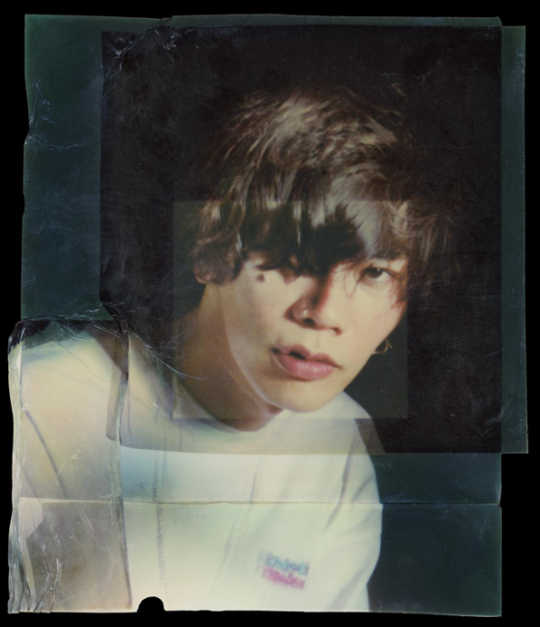
Here I am with the first part of this month’s themed week in “Let’s Listen to”! Today’s subject is one of the most awaited released of the Japanese summer, the latest effort of the pop artist Kenshi Yonezu, the fifth album Stray Sheep, came out today. The album’s concept comes straight from the title, a reference to the parable of the “stray sheep” told in the New Testament, used to describe the sense of confusion and disorientation brought by the current times. And now… let’s review!

-Campanella: the album opens with the first lead-track, featuring a pretty peculiar sound; soft beats accompain Kenshi’s flowing and natural vocals, in a light and upbeat pop melody; a nice opening song, with an interesting vocal interpretation. —> 9/10
-Flamingo: one of the leads from the tenth single sees a more decise sound, where Kenshi’s vocals move swiftly in the articulated melody, well underlined by the bass; a flowing and easy song, which keeps up the positive atmosphere of the album. —> 8.5/10
-Kanden (Electroshock): the second lead-track of the album, used as theme for the drama MIU404, is kicked off by pretty positive notes, surrounded by a pretty simple beat; the vocals are nice and pretty balanced, especially in the refrain, making it even catchier; a nice track, dyed by a jazzy vibe. —> 8.5/10
-Placebo (ft. Yojiro Noda): this song starts with soft notes, accompained by a pretty relevant beat; Kenshi’s voice is steady, keeping up the melody along with interesting guitar notes and a pretty efficient duet with the lead-singer of Radwimps, in another catchy and easy track. —> 8.5/10
-Paprika: the lead of the thirteenth single starts with slower and melancholic notes, disposed in a peculiar way; Kenshi’s vocals are pretty suggestive, driving an electronic and fascinating melody, made of a balance between positive and melancholic shades; a song which brings the album to a maturer side. —> 9/10
-Uma to shika (Horse and deer): natural vocals and nice guitar notes open the lead of the twelfth single, used as theme for the drama No Side Game; the rhythm builds up slowly, leading up to a pretty pleasant melody, with not so exaggerated electronic effects, greatly helped by a deep vocal interpretation; a distinctive track. —> 9/10
-Yasashii hito (Kind person): this song sees sweet vocals by Kenshi, accompained by warm guitar notes, leading up to a slow and melancholic ballad, where the vocal interpretation is the most remarkable highlight of the track; a track which shows Kenshi Yonezu’s emotional side at best. —> 9/10
-Lemon: the lead song of the ninth single, theme song of the drama Unnatural, starts with Kenshi’s deep vocals, accompained by a nice melody and a flowing beat, creating an intense atmosphere; the melody improves more thanks to a rock vibe, especially in the refrain, making this track even better, without forgetting the vocal interpretation, which improves more in the second part. —> 9.5/10
-Machigai sagashi (Look for a mistake) -Masaki Sudacover-: the song starts with twittering birds, bringing back the naturalist touch seen in Kenshi Yonezu’s music, where the vocals become sombre and mature, accompaining a crystalline fascinating melody; a song which looks back to this artist’s origins, exalted by the vocals and a good use of electronic notes. —> 9.5/10
-Himawari (Sunflower): this song brings back the positive vibe in the album, with soft notes opening the song, whose rhythm is pretty fast and the melody is upbeat; the vocals are living, accompained by a fresh guitar, in a pleasant and catchy song, featuring a sort of exotic vibe. —> 9/10
-Mayoeru Hitsuji (Stray sheep): the title-track starts with a pretty steady melody, featuring decise and dark-ish tones; Kenshi’s voice is intriguing, bringing out a really peculiar vocal interpretation; a good song, built by a various and fresh melody, improved by a nice piano work. —> 9/10
-Décolleté: this song sees a retrò vibe, where the enigmatic notes mix up with a balanced beat for a quite paced melody, driven by Kenshi’s simple vocals; the song is pretty good, where the best feature is a curious mix of R'n'B and folk sound. —> 9/10
-Teenage Riot: the second lead of the tenth single starts with interesting guitar notes and a fast beat; the vocals are pretty steady, but fitting with the unpredictable approach of the song, whose melody evolves even thanks to a balanced drum work; another great track, exalting once again Kenshi’s singing skills. —> 9/10
-Umi no yuurei (Spirits of the sea): the lead of the eleventh single, used as theme for the movie Kaiju no kodomo, is kicked off by Kenshi’s clear vocals, accompained by a nice piano, where the rhythm is made by a slow and articulated beat, where the vocal interpretation is filled by nostalgical shades; a quite compelling track, where the melody evolves with suggestive electronic notes. —> 9/10
-Canary: the album ends with a quite long song, staying in the nostalgical side; Kenshi’s voice is intense, accompained by clear piano notes, driving up a slow and melodious theme, making the song even more compelling than expected; the vocal interpretation reaches high peaks, especially in clearer notes, where the violin gives an extra touch to an already awesome song. —> 9.5/10
Final Vote —> 9/10
Kenshi Yonezu is definitely an unique artist within the Japanese pop scene and a confirmation of how in music surprises never end. In ten years of career he always brought something new and refreshing, reinventing his concept through his suggestive art and melodies touching each emotion possible. Stray Sheep represents a fundamental step forward in his path, since it extended his sound to a wider audience, even outside Japan, bringing upbeat melodies, melancholic notes, compelling and various vocals, and a touch of nostalgia and nature, reprised by Kenshi’s early style, showing how pop music is able to bring in unexpected directions and to further horizons. This album is a breath of fresh air, needed in troubled times like these, whose influence is felt even inside each track, and a good companion for everyday life, making it more pleasant and flowing, without any doubt. If you are looking for an intense pop artist, whose sound goes out of schemes, Kenshi Yonezu is your answer, especially with this fifth album. An album for who already knows Kenshi’s unique world and for who needs to get into his music, made of positivity, nostalgia and feelings.
That’s all folks! See you with the second part of this month’s themed week in “Throwback Thursday”!
Thanks for the reading!
READ OUR RELATED POSTS:
REVIEWS
